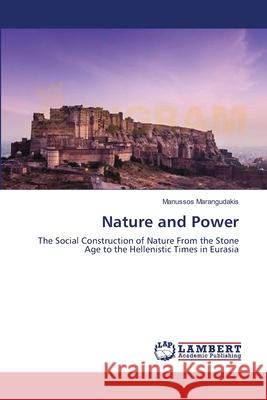Nature and Power » książka
Nature and Power
ISBN-13: 9783659562082 / Angielski / Miękka / 2014 / 312 str.
Were the ancients more friendly to Nature than us the moderns? Is there any moment in time that heralds the Great Divide between humans and nature? How could we account for environmental collapses such as the Pleistocene Overkill, massive deforestations and desertifications that occurred in the midst of peoples who worshiped Mother Nature? The monograph explores the social patterns of the ancient world as they are structured around three distinct phases of social evolution: (a) hunters and gatherers, (b) sedentary communities, and (c) civilizational centers of intense social inequality. The study juxtaposes economic vis. ideological social networks of power to identify the relation and the interaction between distinct social processes and structures that signify the unique ways humans exploited nature and built their worldviews.
Were the ancients more friendly to Nature than us the moderns? Is there any moment in time that heralds the Great Divide between humans and nature? How could we account for environmental collapses such as the Pleistocene Overkill, massive deforestations and desertifications that occurred in the midst of peoples who worshiped Mother Nature? The monograph explores the social patterns of the ancient world as they are structured around three distinct phases of social evolution: (a) hunters and gatherers, (b) sedentary communities, and (c) civilizational centers of intense social inequality. The study juxtaposes economic vis. ideological social networks of power to identify the relation and the interaction between distinct social processes and structures that signify the unique ways humans exploited nature and built their worldviews.











